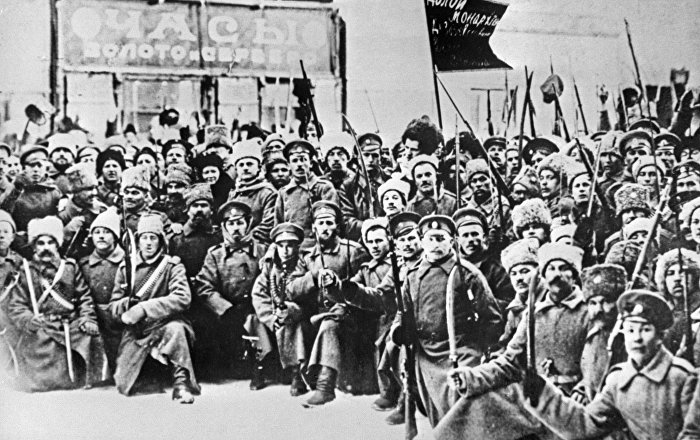ADVERTS
Russia – February Revolution
The February Revolution of 1917 was the first moment that involved the context of Russia and the world economy in that period.
With the deposition of the Russian monarchy, the power that highlighted the fragility of capitalism was demonstrated, especially in matters related to the consequences arising from the world war.
ADVERTS
Russia, as a participant in the conflicts during the First World War (1918 – 1918), had a large population experiencing enormous social suffering. There was a mass of peasants unable to survive outside the oppressive domination of large landowners and the formation of a large class of workers exploited by industries promoted by foreign economic groups.
In this context, Leon Trotsky managed to rally a large part of the population around a revolutionary political project. Thus, the Bolshevik party was formed, promising an immediate transformation that would meet the demands of workers in the continental nation.
With the casualties in the First War came the strengthening of the revolutionary potential, as the economic conditions barely supported the civilian population, in the external context.
ADVERTS
In 1917 the situation reached an unsustainable point. Food stores were looted by the population, strike movements were organized and protests against the Tsar's government took to the streets of the capital Petrograd.
Repressive forces, which did not recognize the established power, took part in the overthrow of the government, which occurred on February 26, 1917.
Tsar Nicholas II, feeling pressured, abdicated monarchical power. A dubious political situation then emerged in Russia.
The parliament, mostly made up of bourgeoisie, took over the government. Soviets (workers' organizations) began to concentrate in the capital, hoping for their demands. During this period, soviets were dominated by reformist thoughts, favoring gradual transformation.

Lenin's return
When Lenin returned from exile, he broke with Bolshevik supporters and published the April Theses. In this, he preached the reformulation of politics, opposing the order in which parliament would be the instrument of direct political action.
Lenin, in his incisive speeches, demonstrated a more urgent picture, where workers should have immediate decision-making power.
He did not advocate an immediate imposition of the socialist regime, but according to what he thought, the revolution should reach a stage in which the working classes would decide what Russia's recovery would be like.
His opponents said that he was forcing a revolution with the intention of destabilizing the new government in force. But his proposals gained traction.
In April 1917, the then bourgeois government kept Russia in the First War, which contributed to its failure. Miliukov, head of the provisional government, resigned from his position, which ended up giving rise to a configuration of shared command between bourgeoisie and workers.
The new government contained the popular people and reorganized the Russian armies. But in June, new military defeats showed the unviability of the government formed by workers and bourgeoisie.
The protests were intensified and the uprisings in the capital were not enough to form a new government. Conservatives took advantage of the situation and tried to exclude people from politics. Many accused the Bolsheviks of being committed to the interests of their war enemies and even tried to support a military coup led by General Kornilov, which ended up failing.
Russian workers and soldiers demonstrated great opposition against a new order of dictatorial government, the military abandoned the battlefields of the First World War and the peasants intensified their protests. Lenin's ideas began to gain strength in the majority of soviets and thus a new revolution began to prepare.
